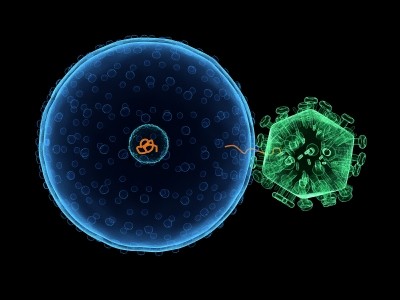10 Facts About Autoimmune Diseases
Autoimmune diseases are not longer the mystery it used to be in the past. It is now fairly well understood. These conditions occur when the immune system attacks parts of the body and this leads to inflammation. Since it is long term, there are various complications that may arise over time. Despite greater public awareness and a better understanding of these conditions, there are still many misconceptions that exist around autoimmune diseases. Normally the body has mechanisms to protect against the immune system attacking it. At most the immune system may attack a cell that is heavily infected with a biological agent or if it is abnormal and cancerous. Otherwise a healthy immune system continues to defend the body without harming the cells, tissues and organs.
Not An Infection

An autoimmune disease is not an infectious disorder. This means that it is not caused by any biological agent like viruses, bacteria, protozoa and fungi. However, an infection may sometimes serve as a trigger for some types of autoimmune diseases. Antibodies produced by the immune system against a biological agent during an infection may subsequently direct the immune system against body’s own tissue. An infection can “confuse” the immune system in this way but it is more likely be a problem in a person who has a genetic susceptibility. It is believed that viral infections are one of the major triggers of autoimmune diseases.
Young Women At Risk
When we think of some of the common autoimmune disorders like rheumatoid arthritis, we tend to think that it is a problem for older people. This is not true. Autoimmune conditions tend to arise early in life. Type 1 diabetes is an autoimmune disease and starts in childhood or adolescence. Rheumatoid arthritis starts around the 20s and 30s, like with systemic lupus erythematosus (SLE). However, the condition often worsens and leads to complications later in life where it become more noticeable and therefore it is often though that autoimmune diseases are more likely to affect the elderly.
Genetics Not Contagious
Autoimmune conditions are not contagious. This means you cannot get it from touching, sharing personal items or being in the same room as a person with an autoimmune disease. However, most of these conditions have a familial predisposition which is due to genetics. A person may be born with genes that make them susceptible to developing the condition. This is not to say that every person in the family will get it. But it is genetics that leads to certain autoimmune conditions affecting family members and not that the disease is contagious.
More Than One Disease
A person with a specific autoimmune disease is known to be at a greater risk of developing another autoimmune disease simultaneously. Sometimes this other disease remains undiagnosed if it is minor or one autoimmune disease may appear as the other subsides. Psoriatic arthritis is a typical case. Here the patient technically has co-existing rheumatoid arthritis and psoriasis. Another important point to note is that genetic predisposition does not necessarily mean that you will develop the exactly same autoimmune disease as family members. You could have a separate autoimmune disease but it is still due to your genetic susceptibility that is inherited.
Autoimmune vs Allergies

An autoimmune disease has some similarities to an allergy. Both are due to the overactivity of the immune system. But autoimmune diseases are not allergies. In an allergy the immune system activity increases with exposure to certain otherwise harmless substances known as allergens. With an autoimmune disease, the immune system activity is directed towards the body’s own tissues and is heightened at the site it affects. While the effects of some allergic reactions can be serious and potentially deadly, like in anaphylaxis, allergies are generally harmless but may cause debilitating symptoms in severe cases.
Whole Body Or Single Part
The immune system is active throughout the body. Type 1 diabetes is an autoimmune disease where the immune system targets the insulin-producing cells. In rheumatoid arthritis the joint linings are targeted and in psoriasis it is the skin. But not all autoimmune diseases are isolated to a single type of tissue or specific part of the body. Some affect the entire body although certain organs are more affects that others. Systemic lupus erythematosus (SLE) is one such example of where the autoimmune disease may affect the whole body.
Some Can Be Deadly
Some autoimmune diseases can be deadly. Systemic lupus erythematosus (SLE), commonly known as lupus, is one such case. This does not mean that every patient with SLE will definitely die from the condition. Some patients have the condition worse than others. But managing the condition appropriately can drastically reduce the chances of death. With conditions like SLE, it is the effects of long term inflammation and damage to vital organs that eventually leads to death. Late diagnosis of the condition and poor patient compliance (where patients do not take the medication as prescribed) are some of the main reasons for fatal outcomes.
Testing For Autoimmune

Certain tests are run when your doctor suspects that you have an autoimmune disease. These tests verify the activity of the immune system and the presence of certain antibodies which are typically seen in specific autoimmune diseases. However, in some patients these tests may be negative. It does not mean that a person does not have a certain autoimmune disease if the test is negative. But laboratory studies alone should not be relied on entirely for a conclusive diagnosis of an autoimmune condition.
Treatment With Corticosteroids
Corticosteroids are widely used in the treatment of autoimmune diseases. It is administered to suppress immune activity. Oral corticosteroids are is unable to specifically target the part of the immune activity associated with the disease while retaining other immune defenses. Long term corticosteroid therapy has a number of side effects that may be unpleasant and sometimes harmful. However, it is often the only reliable long term option for treating autoimmune diseases and patients should not quit it on their own. Doing so can sometimes have very dangerous consequences like if it is being use to treat SLE. The low dose corticosteroid therapy is usually not as harmful as high doses.
Cured Or Remission
Most autoimmune diseases are chronic conditions. While some may resolve, usually spontaneously and for unknown reasons, most do not. There are periods where many if not all of the symptoms clear up and there is no sign of the disease for months, years or even decades. However, these are periods of remission and the disease can flare-up again at any time. Therefore patients should understand the difference between a cure and remission. Autoimmune diseases are not easily cured, neither by modern medicine or complementary therapies. However, different treatment options can suppress symptoms and even help with putting the condition in remission.
Reference:
www.webmd.com/rheumatoid-arthritis/features/autoimmune-disease-and-ra
www.nlm.nih.gov/medlineplus/autoimmunediseases.html
www.womenshealth.gov/publications/our-publications/fact-sheet/autoimmune-diseases.cfm




